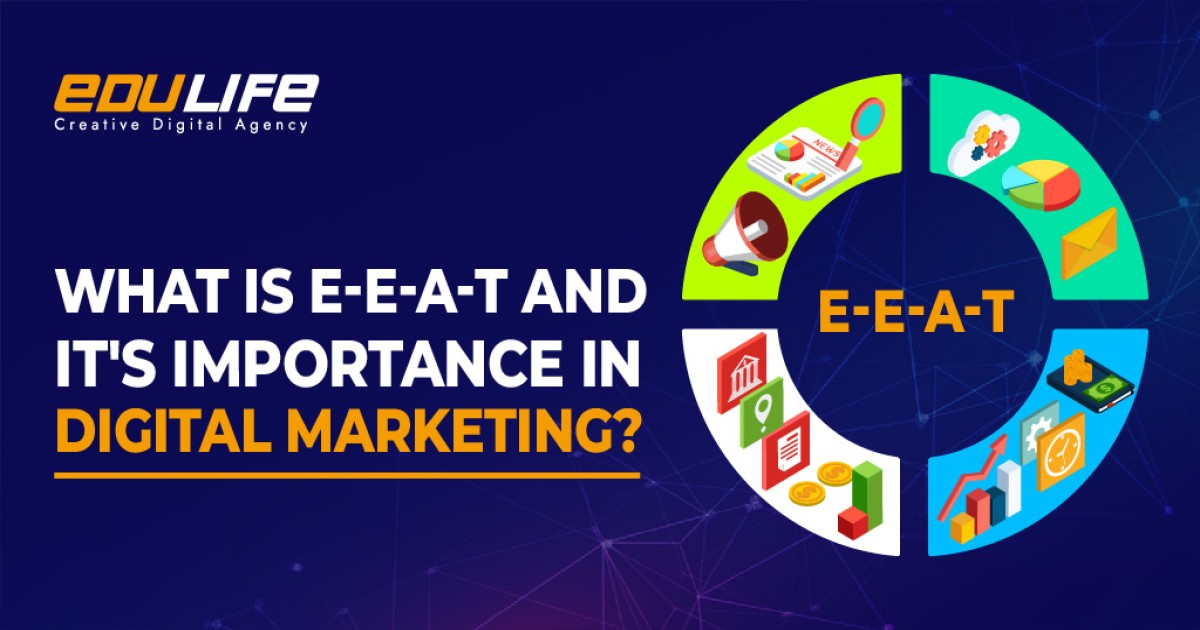
Experience, expertise, authority, and trustworthiness are the four components of Google's Search Quality Rater Guidelines and they are represented by the symbols E-E-A-T. It is a part of Google's Search Quality Evaluator recommendations (SQEG) however, it is not a ranking requirement. Google quality raters consider E-E-A-T as a collection of rules to assess the overall quality of online content rather than as a single ranking component. It assists Google in evaluating if an amount of material is accurate, trustworthy and indeed beneficial to users. To give users the finest material, Google search algorithms are changed regularly.
The quality of your content increases your website's chances of ranking well on search engine results pages (SERPs). Each element influences how trustworthy and beneficial a piece of material is for users.
The concept of "experience" describes the writer's first-hand expertise. Google focuses on substances produced by highly skilled individuals with this component. The best approach for small and medium-sized businesses is to provide content that showcases case studies, client testimonials, and the practical uses of your goods or services.
Google looks for the following when considering experience:
Google's quality raters need to ascertain whether the writers contributing to the material on your website are, in fact subject matter experts. Experience and expertise are not the same, even if they may overlap. Even when an author has years of experience in their profession, they might not possess the qualifications or in-depth knowledge necessary to be considered an expert in that industry.
Google searches for expertise by looking for:
The goal of authoritativeness is to build your website as the authority on all matters related to your sector or subject. This may be accomplished by producing unique material, obtaining backlinks from reliable websites, obtaining many positive reviews and actively engaging in online and offline industry discussions.
The following factors are taken into account by Google quality raters when looking at authority:
Everything boils down to trustworthiness, which is the fundamental component of E-E-A-T. Your website must provide clear contact information, prioritize user experiences, be safe, have simple rules, and communicate your business practices. These factors show the reliability of your website and, consequently, your company.
Google uses the following elements to analyze trustworthiness:
E-E-A-T plays an essential component in digital marketing to build trust and increase accessibility in search engine results. Your digital marketing plan may be greatly enhanced by knowing the effects of E-E-A-T Here's why:
E-E-A-T maintains knowledge, authority, and reliability, which goes beyond ordinary SEO strategies. It highlights the value of producing top-notch content that engages the users.
You may increase customer trust and improve the reputation of your company by giving E-E-A-T top priority. Increased internet traffic, enhanced client loyalty, and higher conversion rates are the results of this.
E-E-A-T ensures that your material is trustworthy, truthful, and open. When people have faith in your content, they are more likely to interact with your brand and make wise selections.
Providing your audience with relevant and reliable information is the goal of E-E-A-T. By continuously creating reliable material, you build a devoted audience and become recognized as an authority in your field of expertise.
A smart strategy that can set your company apart and promote long-term success is to include E-E-A-T elements into your digital marketing initiatives.
Here’s how you can make sure your website complies with Google’s E-E-A-T guidelines:
By considering your current material, you can begin putting E-E-A-T into practice. Content that lacks experience, competence, authority, and trustworthiness should be edited and improved and it should be replaced with alternatives that have been well-studied and properly cited. Next, find areas where your content strategy is lacking and come up with concepts that will establish your brand as an authority in your field.
Highlight the qualifications and experience of your team members in their author biographies to capitalize on their knowledge. Don't be afraid to flaunt their professional accomplishments and celebrate them. These position your brand as an authority in the field. Invite outside experts to review or guest write on your site. This guarantees that all connections and statistics are current.
The quality of backlinks is more important than the number. Make an effort to obtain backlinks from trustworthy websites. Keep in mind that backlinks are like support from other websites, signifying the authority and trustworthiness of your website.
A few examples of online security concepts that you (and your website) should be aware of include privacy policies, certifications, HTTPS encryption and web application firewalls (WAF).
Off-page activities also help to improve your SEO and establish the reputation of your company. Participate in conversations with your followers on social media and address their comments and issues. One method for showing Google that you value and prioritize your audience is to reply to both positive and negative comments.
Building credibility and raising search engine ranks in digital marketing requires E-E-A-T (Experience, Expertise, Authoritativeness and Trustworthiness). Although it isn't a direct ranking requirement, it aids Google in assessing the reliability and quality of content. By proving their knowledge, obtaining reputable backlinks, enhancing website security and interacting with audiences, businesses may improve E-E-A-T. Putting a premium on clear, high-quality content improves SEO, builds consumer trust and builds up brand authority. Effective E-E-A-T implementation defines companies and guarantees long-term success in the tough digital market.